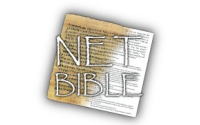May 19 – 2 Samuel 18 and 19 from the Old Testament
2 Samuel 18 and 19 – The Death of Absalom
18:1 David assembled the army that was with him. He appointed leaders of thousands and leaders of hundreds. 18:2 David then sent out the army – a third under the leadership of Joab, a third under the leadership of Joab’s brother Abishai son of Zeruiah, and a third under the leadership of Ittai the Gittite. The king said to the troops, “I too will indeed march out with you.”
18:3 But the soldiers replied, “You should not do this! For if we should have to make a rapid retreat, they won’t be too concerned about us. Even if half of us should die, they won’t be too concerned about us. But you are like ten thousand of us! So it is better if you remain in the city for support.” 18:4 Then the king said to them, “I will do whatever seems best to you.”
So the king stayed beside the city gate, while all the army marched out by hundreds and by thousands. 18:5 The king gave this order to Joab, Abishai, and Ittai: “For my sake deal gently with the young man Absalom.” Now the entire army was listening when the king gave all the leaders this order concerning Absalom.
18:6 Then the army marched out to the field to fight against Israel. The battle took place in the forest of Ephraim. 18:7 The army of Israel was defeated there by David’s men. The slaughter there was great that day – 20,000 soldiers were killed. 18:8 The battle there was spread out over the whole area, and the forest consumed more soldiers than the sword devoured that day.
18:9 Then Absalom happened to come across David’s men. Now as Absalom was riding on his mule, it went under the branches of a large oak tree. His head got caught in the oak and he was suspended in midair, while the mule he had been riding kept going.
18:10 When one of the men saw this, he reported it to Joab saying, “I saw Absalom hanging in an oak tree.18:11 Joab replied to the man who was telling him this, “What! You saw this? Why didn’t you strike him down right on the spot? I would have given you ten pieces of silver and a commemorative belt!”
18:12 The man replied to Joab, “Even if I were receiving a thousand pieces of silver, I would not strike the king’s son! In our very presence the king gave this order to you and Abishai and Ittai, ‘Protect the young man Absalom for my sake.’ 18:13 If I had acted at risk of my own life – and nothing is hidden from the king! – you would have abandoned me.”
18:14 Joab replied, “I will not wait around like this for you!” He took three spears in his hand and thrust them into the middle of Absalom while he was still alive in the middle of the oak tree. 18:15 Then ten soldiers who were Joab’s armor bearers struck Absalom and finished him off.
18:16 Then Joab blew the trumpet and the army turned back from chasing Israel, for Joab had called for the army to halt. 18:17 They took Absalom, threw him into a large pit in the forest, and stacked a huge pile of stones over him. In the meantime all the Israelite soldiers fled to their homes.
18:18 Prior to this Absalom had set up a monument and dedicated it to himself in the King’s Valley, reasoning “I have no son who will carry on my name.” He named the monument after himself, and to this day it is known as Absalom’s Memorial.
David Learns of Absalom’s Death
18:19 Then Ahimaaz the son of Zadok said, “Let me run and give the king the good news that the Lord has vindicated him before his enemies.” 18:20 But Joab said to him, “You will not be a bearer of good news today. You will bear good news some other day, but not today, for the king’s son is dead.”
18:21 Then Joab said to the Cushite, “Go and tell the king what you have seen.” After bowing to Joab, the Cushite ran off. 18:22 Ahimaaz the son of Zadok again spoke to Joab, “Whatever happens, let me go after the Cushite.” But Joab said, “Why is it that you want to go, my son? You have no good news that will bring you a reward.” 18:23 But he said, “Whatever happens, I want to go!” So Joab said to him, “Then go!” So Ahimaaz ran by the way of the Jordan plain, and he passed the Cushite.
18:24 Now David was sitting between the inner and outer gates, and the watchman went up to the roof over the gate at the wall. When he looked, he saw a man running by himself. 18:25 So the watchman called out and informed the king. The king said, “If he is by himself, he brings good news.” The runner came ever closer.
18:26 Then the watchman saw another man running. The watchman called out to the gatekeeper, “There is another man running by himself.” The king said, “This one also is bringing good news.” 18:27 The watchman said, “It appears to me that the first runner is Ahimaaz son of Zadok.” The king said, “He is a good man, and he comes with good news.”
18:28 Then Ahimaaz called out and said to the king, “Greetings!” He bowed down before the king with his face toward the ground and said, “May the Lord your God be praised because he has defeated the men who opposed my lord the king!”
18:29 The king replied, “How is the young man Absalom?” Ahimaaz replied, “I saw a great deal of confusion when Joab was sending the king’s servant and me, your servant, but I don’t know what it was all about.” 18:30 The king said, “Turn aside and take your place here.” So he turned aside and waited.
18:31 Then the Cushite arrived and said, “May my lord the king now receive the good news! The Lord has vindicated you today and delivered you from the hand of all who have rebelled against you!” 18:32 The king asked the Cushite, “How is the young man Absalom?” The Cushite replied, “May the enemies of my lord the king and all who have plotted against you be like that young man!”
18:33 (19:1) The king then became very upset. He went up to the upper room over the gate and wept. As he went he said, “My son, Absalom! My son, my son, Absalom! If only I could have died in your place! Absalom, my son, my son!”
19:1 (19:2) Joab was told, “The king is weeping and mourning over Absalom.” 19:2 So the victory of that day was turned to mourning as far as all the people were concerned. For the people heard on that day, “The king is grieved over his son.” 19:3 That day the people stole away to go to the city the way people who are embarrassed steal away in fleeing from battle. 19:4 The king covered his face and cried out loudly, “My son, Absalom! Absalom, my son, my son!”
19:5 So Joab visited the king at his home. He said, “Today you have embarrassed all your servants who have saved your life this day, as well as the lives of your sons, your daughters, your wives, and your concubines. 19:6 You seem to love your enemies and hate your friends! For you have as much as declared today that leaders and servants don’t matter to you. I realize now that if Absalom were alive and all of us were dead today, it would be all right with you. 19:7 So get up now and go out and give some encouragement to your servants. For I swear by the Lord that if you don’t go out there, not a single man will stay here with you tonight! This disaster will be worse for you than any disaster that has overtaken you from your youth right to the present time!”
19:8 So the king got up and sat at the city gate. When all the people were informed that the king was sitting at the city gate, they all came before him.
David Goes Back to Jerusalem
But the Israelite soldiers had all fled to their own homes. 19:9 All the people throughout all the tribes of Israel were arguing among themselves saying, “The king delivered us from the hand of our enemies. He rescued us from the hand of the Philistines, but now he has fled from the land because of Absalom. 19:10 But Absalom, whom we anointed as our king, has died in battle. So now why do you hesitate to bring the king back?”
19:11 Then King David sent a message to Zadok and Abiathar the priests saying, “Tell the elders of Judah, ‘Why should you delay any further in bringing the king back to his palace, when everything Israel is saying has come to the king’s attention. 19:12 You are my brothers – my very own flesh and blood! Why should you delay any further in bringing the king back?’ 19:13 Say to Amasa, ‘Are you not my flesh and blood? God will punish me severely, if from this time on you are not the commander of my army in place of Joab!’”
19:14 He won over the hearts of all the men of Judah as though they were one man. Then they sent word to the king saying, “Return, you and all your servants as well.” 19:15 So the king returned and came to the Jordan River.
Now the people of Judah had come to Gilgal to meet the king and to help him cross the Jordan. 19:16 Shimei son of Gera the Benjaminite from Bahurim came down quickly with the men of Judah to meet King David. 19:17 There were a thousand men from Benjamin with him, along with Ziba the servant of Saul’s household, and with him his fifteen sons and twenty servants. They hurriedly crossed the Jordan within sight of the king. 19:18 They crossed at the ford in order to help the king’s household cross and to do whatever he thought appropriate.
Now after he had crossed the Jordan, Shimei son of Gera threw himself down before the king. 19:19 He said to the king, “Don’t think badly of me, my lord, and don’t recall the sin of your servant on the day when you, my lord the king, left Jerusalem! Please don’t call it to mind! 19:20 For I, your servant, know that I sinned, and I have come today as the first of all the house of Joseph to come down to meet my lord the king.”
19:21 Abishai son of Zeruiah replied, “For this should not Shimei be put to death? After all, he cursed the Lord’s anointed!” 19:22 But David said, “What do we have in common, you sons of Zeruiah? You are like my enemy today! Should anyone be put to death in Israel today? Don’t you realize that today I am king over Israel?” 19:23 The king said to Shimei, “You won’t die.” The king vowed an oath concerning this.
19:24 Now Mephibosheth, Saul’s grandson, came down to meet the king. From the day the king had left until the day he safely returned, Mephibosheth had not cared for his feet nor trimmed his mustache nor washed his clothes.
19:25 When he came from Jerusalem to meet the king, the king asked him, “Why didn’t you go with me, Mephibosheth?” 19:26 He replied, “My lord the king, my servant deceived me! I said, ‘Let me get my donkey saddled so that I can ride on it and go with the king,’ for I am lame. 19:27 But my servant has slandered me to my lord the king. But my lord the king is like an angel of God. Do whatever seems appropriate to you. 19:28 After all, there was no one in the entire house of my grandfather who did not deserve death from my lord the king. But instead you allowed me to eat at your own table! What further claim do I have to ask the king for anything?”
19:29 Then the king replied to him, “Why should you continue speaking like this? You and Ziba will inherit the field together.” 19:30 Mephibosheth said to the king, “Let him have the whole thing! My lord the king has returned safely to his house!”
19:31 Now when Barzillai the Gileadite had come down from Rogelim, he crossed the Jordan with the king so he could send him on his way from there. 19:32 But Barzillai was very old – eighty years old, in fact – and he had taken care of the king when he stayed in Mahanaim, for he was a very rich man. 19:33 So the king said to Barzillai, “Cross over with me, and I will take care of you while you are with me in Jerusalem.”
19:34 Barzillai replied to the king, “How many days do I have left to my life, that I should go up with the king to Jerusalem? 19:35 I am presently eighty years old. Am I able to discern good and bad? Can I taste what I eat and drink? Am I still able to hear the voices of male and female singers? Why should I continue to be a burden to my lord the king? 19:36 I will cross the Jordan with the king and go a short distance. Why should the king reward me in this way? 19:37 Let me return so that I may die in my own city near the grave of my father and my mother. But look, here is your servant Kimham. Let him cross over with my lord the king. Do for him whatever seems appropriate to you.”
19:38 The king replied, “Kimham will cross over with me, and I will do for him whatever I deem appropriate. And whatever you choose, I will do for you.”
19:39 So all the people crossed the Jordan, as did the king. After the king had kissed him and blessed him, Barzillai returned to his home. 19:40 When the king crossed over to Gilgal, Kimham crossed over with him. Now all the soldiers of Judah along with half of the soldiers of Israel had helped the king cross over.
19:41 Then all the men of Israel began coming to the king. They asked the king, “Why did our brothers, the men of Judah, sneak the king away and help the king and his household cross the Jordan – and not only him but all of David’s men as well?”
19:42 All the men of Judah replied to the men of Israel, “Because the king is our close relative! Why are you so upset about this? Have we eaten at the king’s expense? Or have we misappropriated anything for our own use?” 19:43 The men of Israel replied to the men of Judah, “We have ten shares in the king, and we have a greater claim on David than you do! Why do you want to curse us? Weren’t we the first to suggest bringing back our king?” But the comments of the men of Judah were more severe than those of the men of Israel.




